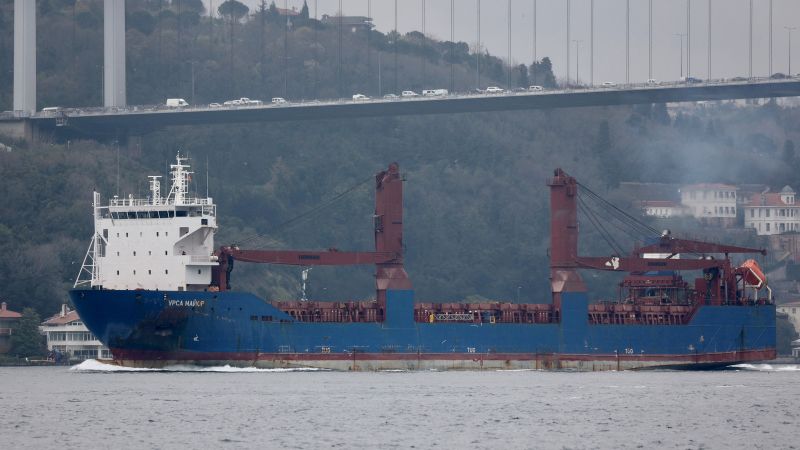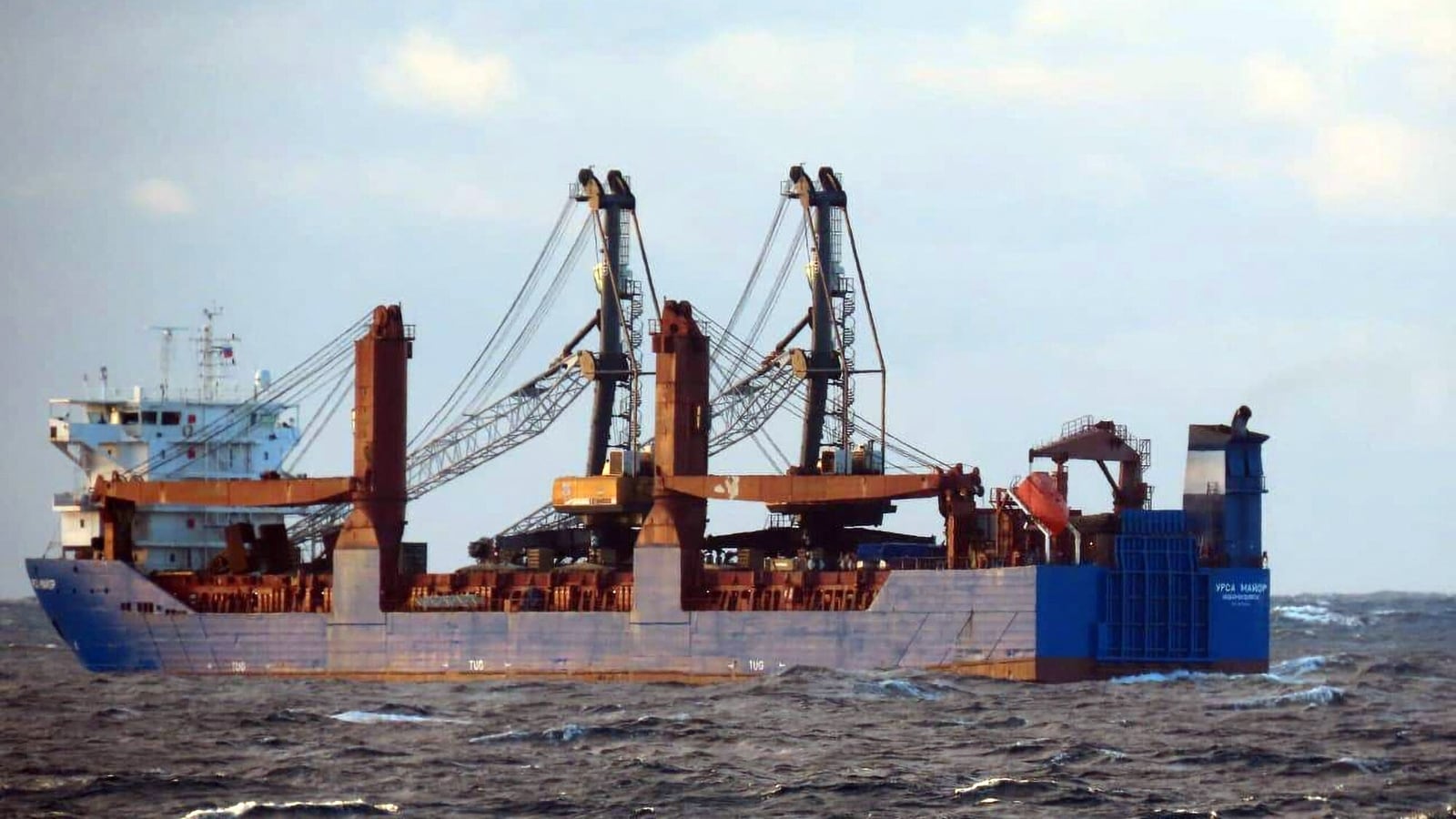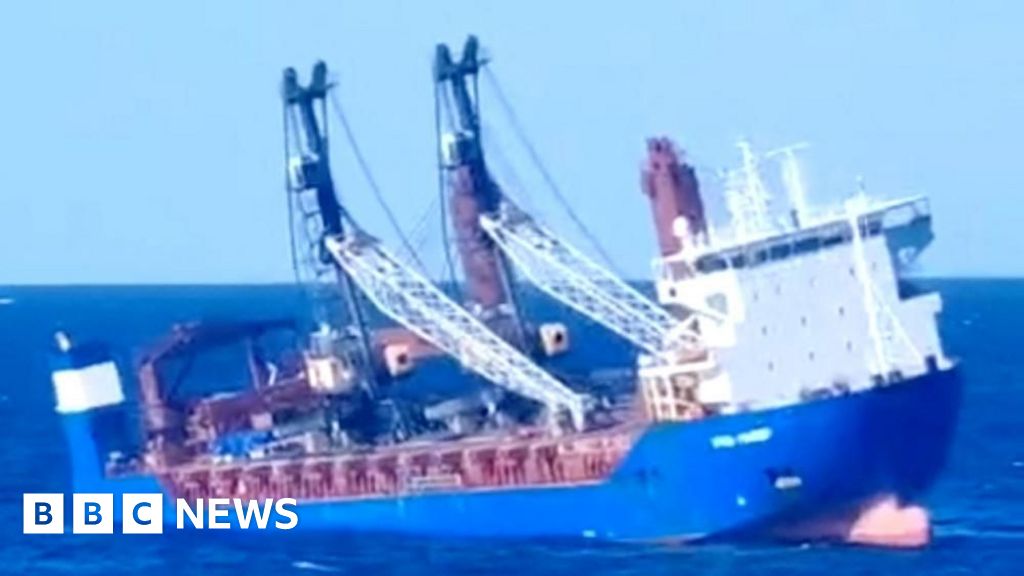Russian cargo ship Ursa Major met a tragic fate in the Mediterranean Sea, sinking after an explosion in its engine room, as confirmed by Russia's foreign ministry. The vessel had departed from St Petersburg 12 days prior, with 14 crew members rescued and brought to the Spanish port of Cartagena, with two still missing. The ship's owner, Oboronlogistika, stated it was en route to Vladivostok in Russia's Far East, carrying heavy cargo, including two massive cranes for the port. While the specific destination could not be independently verified, Spain's Salvamento Marítimo aided in the rescue efforts as the vessel went down near Spain and Algeria.
As Ursa Major battled the elements, reports emerged that another sanctioned Russian ship, Sparta, was also in the vicinity and that both vessels had been observed transiting through the English Channel recently, purportedly under escort. Ukrainian military intelligence hinted that Sparta was allegedly bound for Russia's naval base in Tartous, Syria, to reposition military assets following significant developments in the region. Amidst these events, the Kremlin revealed ongoing discussions with Syria's new leadership regarding the future of Russian military facilities in the area, underscoring the geopolitical implications of the incident.
Notably, Ursa Major, also known as Sparta III, had been central to Oboronlogistika's operations, primarily focused on transporting cargo, including military supplies, to strategic locations. The vessel's Automatic Identification System data depicted its intended route to Vladivostok, with previous visits to Tartous indicating the nature of its missions. Concerns rose earlier when reports surfaced that Sparta encountered mechanical issues off Portugal, subsequently rectified, highlighting the operational challenges faced by these maritime assets.
The circumstances leading to the explosion that ultimately led to Ursa Major's untimely demise remain shrouded in mystery, although footage captured from an adjacent tanker showcased the vessel's distress before its tragic sinking. The vessel, designated as the flagship of Oboronlogistika's fleet, carried essential cargo, such as hatch covers and cranes, crucial for port operations in Vladivostok. However, the vessel's sanctioned status following Russia's activities in Ukraine elevated scrutiny around its activities and risks associated with its operations.
The ripple effects extended beyond the maritime incident, with geopolitical dynamics in the region evolving rapidly. The presence of sanctioned vessels engaged in sensitive cargo transport underscored the intricate web of international relations at play. Additionally, the emergence of reports linking the vessel's movements to strategic repositioning efforts in Syria reinforced the vessel's pivotal role in executing Russia's geopolitical objectives.
In the wake of Ursa Major's sinking, the maritime community grappled with the implications of such incidents on security, safety, and environmental concerns. The tragedy also shed light on the challenges inherent in managing complex maritime operations, often intertwined with political and military objectives. As investigations into the root cause of the explosion unfolded, stakeholders evaluated the broader context surrounding the incident, highlighting the multifaceted nature of maritime activities amidst global uncertainties.
The loss of Ursa Major marked a somber chapter in maritime history, serving as a stark reminder of the inherent risks and complexities associated with maritime operations, particularly in geopolitically sensitive regions. As the maritime industry navigates uncertainties and challenges, lessons learned from this tragedy may shape future strategies to bolster maritime safety, security, and resilience in an ever-evolving geopolitical landscape.



